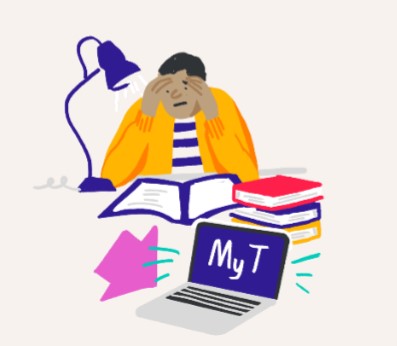This is a guest blog written by Nirel Dickens, an English Tutor on MyTutor.
Hi! I’m Nirel and I am an autistic English tutor.
Being autistic is a part of who I am. I believe that my autism makes me a great tutor even though it is still a disability in general life. It means (to me, because every autistic person is unique) that I am efficient, methodical, specific and organised. I also have lots of empathy which helps me identify when a pupil is struggling or disengaging in the lesson space.
Some of the things I have said about myself break some autistic stereotypes! Let’s talk about these…
Common Stereotypes
Every autistic person is their own person. They are each different and unique. You cannot tell what an autistic person is like just by knowing they are autistic! Here are some stereotypes debunked:
• Lack of empathy – False! A lot have an average amount, a lot have a more-than-average amount. It is often the typical ‘social skills’ we lack – reading social cues, not knowing how to act – sometimes that makes us look cold, but we are not, like most other people.
• Lack of eye contact – Not every autistic person! Some cannot at all, some have no problem with it, some learn to do it, and some can do it but it makes them tired after a while. If your pupil does lack eye contact (i.e. looking at the picture), that’s okay. There is nothing wrong with that. That’s just how we roll!
• Lack of creativity and humour – False! It’s not that black and white. We are all unique! I love creative writing, I love science, I like making and listening to jokes…that’s just who I am.
As you can see, these stereotypes are mostly negative or problematic. We need to squash them and empower our autistic pupils by treating them as whole beings, not as an archetype.
Another important thing to note is that autistic people don’t all look the same or live the same lives – a lot are girls (often left undiagnosed until late teens), a lot are from ethnic or cultural minorities (their autism often missed), and a lot are LGBTQ+. We are a diverse group.
Struggles for Autistic Tutors and Pupils


Tutors
While being autistic helps me as a tutor, some elements such as social interaction can be anxiety-inducing and tough. It takes a lot more effort for me to communicate both verbally and non-verbally, and to read social cues when interacting with pupils and parents (on free meetings for example): How do I say hello? How do I move onto the next thing to talk about? Are they ready to end the call? Should I end it now?
My solution to this problem is scripts! Having a sort of formula for free meetings and lessons really helped me, and completing the training on the MyTutor Academy gave me lots of tips on what to say and when to say it. Also, the more I did it, the more I settled into the process of introducing myself and talking in any meeting, and now I don’t need the ‘formula’ in front of me – it isn’t new to me anymore. (Of course, remember to carefully plan your lessons!)
I also like a set routine, and so do many other autistic people. Obviously, the timings for tutoring can be a bit all over the place, so make sure you plan in advance. Open up an online calendar and mark out all the important parts of your day or routine, and then mark where you could tutor. Now you know what times you can/want to do, and you don’t have to change too much of your routine.
Pupils
Talking of change, lots of autistic people tend to dislike it. When we are young as well, we have not yet fully grasped ways to deal with change. That’s why it’s so important to make sure you are consistent with your autistic pupils if they have expressed this struggle. Of course, this is important for tutoring anyway, but try not to change any times, and give as much notice as possible if you have to.
Online tutoring might also be new to them, so ask them during their first lesson how they are finding everything. Do they need more time to type? Do they need help lowering the volume or brightness? Are there any other sensory issues? Do they prefer using the chat? Do they need to turn the camera off? Are there any emotional issues you should be aware of? A lot of autistic people statistically lack confidence and tend to struggle with mental health issues.
Don’t forget to take the SEND training on MyTutor Academy if you have an autistic pupil. Also read up on specific issues autistic pupils face.
To Finish…
If you want to learn more about autism in general, you can visit the National Autistic Society website. You could also check out Young Minds and Mind for access to mental health advice for you or others.


If you’re to take anything away from this blogpost, remember to work with any disability, not against it. So use the chat for non-verbal pupils if needed, or keep an autistic pupil engaged with their special interests.
Happy tutoring!




